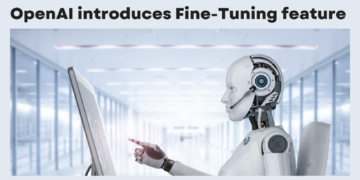Large language models (LLMs) like Meta’s Llama are revolutionizing various fields. But how should these powerful tools be developed and distributed? Mark Zuckerberg, in a recent article titled “Open Source AI Is the Path Forward,” argues that open-sourcing LLMs is the key to maximizing their benefits.
Why Open Source AI?
Zuckerberg highlights several benefits of open source AI, particularly for developers. Open-source models allow developers to fine-tune and distill them for specific tasks, tailoring them to unique needs. This flexibility is crucial for businesses and researchers who require specialized AI solutions. Additionally, open source fosters control over data and destiny. Unlike closed models where data is sent to a provider, these models empower developers to train and run AI locally, addressing privacy concerns. Furthermore, open source is often more secure and cost-efficient. The transparency of open-source code allows for community scrutiny and identification of vulnerabilities, potentially leading to more secure models. Additionally, open-source models can be run on a developer’s own infrastructure, potentially reducing reliance on expensive cloud services.
Beyond developer benefits, Zuckerberg argues that open source AI benefits Meta itself. By fostering a vibrant ecosystem of contributors, Meta gains access to a wider pool of talent and ideas, accelerating innovation. Open source also avoids the limitations of closed ecosystems controlled by competitors. Companies like Apple can restrict what applications run on their platforms, hindering innovation. Open source promotes a level playing field where anyone can build upon existing models. Finally, Zuckerberg argues that open source, despite initial investment, benefits Meta in the long run. Open-source models like Linux have become industry standards, and Meta hopes Llama can follow suit, ultimately driving adoption of their technology.
Open Source AI for a Better World?
The potential benefits of open source AI extend beyond individual companies. Zuckerberg argues that open source fosters a more equitable distribution of AI advancements. By making these powerful tools accessible to everyone, not just large corporations, open source can empower individuals and institutions in developing countries to participate in the AI revolution. This democratization of AI can lead to more widespread innovation and problem-solving across the globe.
Perhaps the most significant argument for the technology is its potential to lead to safer AI. Open-source models are inherently more transparent, allowing the developer community to scrutinize their code and identify potential biases or vulnerabilities. This transparency is crucial for mitigating the risks associated with powerful AI systems. Additionally, open source fosters collaboration between researchers and developers, allowing for faster identification and resolution of safety concerns.
Is Open Source the Answer for Everything?
While Zuckerberg presents a compelling case for open source AI, there are potential drawbacks to consider. One concern is the possibility of malicious actors exploiting open-source models for harmful purposes. The very transparency that enhances safety can also be a double-edged sword, potentially making it easier for bad actors to understand and manipulate these models. Additionally, open source development requires a strong and committed community to ensure the model’s continued improvement and maintenance. Without a dedicated community, open-source models can stagnate or become vulnerable to security risks.
Another potential challenge is the issue of intellectual property (IP). These models often require contributors to share their modifications and improvements, potentially hindering private sector investment in AI research. Companies may be hesitant to invest heavily in research if they cannot reap exclusive benefits from their advancements. Finding a balance between open collaboration and protecting valuable IP is crucial for fostering a healthy open-source AI ecosystem.
The Road Ahead
The future of AI development likely lies in a hybrid approach. Open source can be a powerful tool for accelerating innovation and ensuring the safe and equitable distribution of AI advancements. However, it’s important to acknowledge the potential challenges and develop strategies to mitigate them. Collaboration between governments, tech companies, and academic institutions is essential to build a robust and secure open-source AI ecosystem. Additionally, fostering a culture of responsible AI development, with clear guidelines and best practices, is crucial to ensure that these powerful tools are used for good.



























